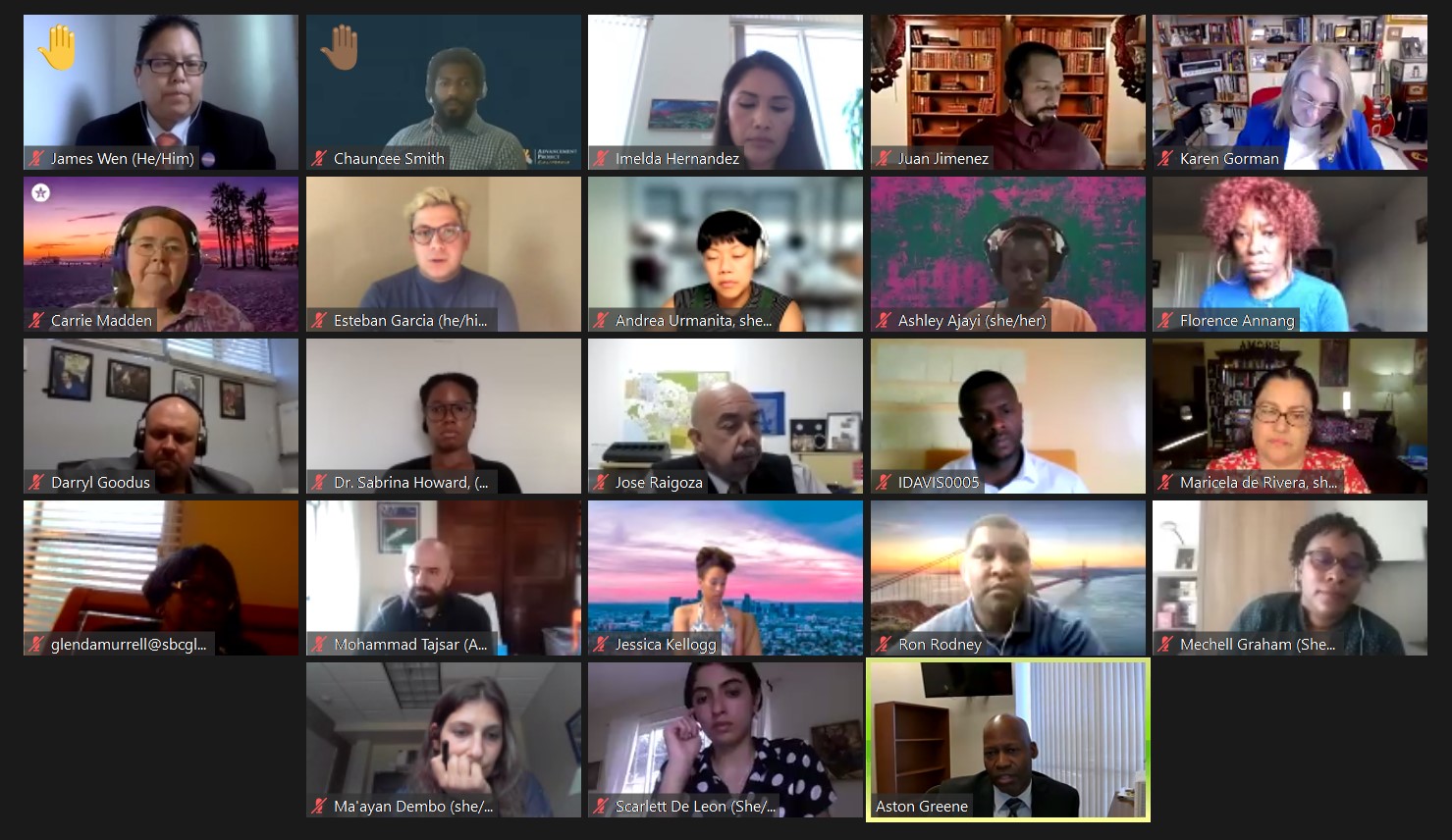Last night, Metro's Public Safety Advisory Committee (PSAC) met for the first time.
The PSAC was established by a Metro board motion approved in June 2020. That motion tasked the committee with developing "a community-based approach to public safety on the transit system" including shifting resources away from armed responses to non-violent crimes and violations - and toward alternatives, including a transit ambassador program and outreach to the unhoused. The PSAC's work will inform Metro's now ~$150 million per year transit policing contract with LAPD, the L.A. County Sheriffs Department (LASD), and Long Beach Police Department. The policing contract is up for renegotiation and renewal in mid-2022.
When Metro transit police requested additional funding for policing as usual, the Metro board reiterated its commitment to shift resources toward community-based public safety by approving $40 million for unarmed response pilot programs – including a $20 million transit ambassador program. Those programs are due to get underway in the next fiscal year, which starts in July.
Last fall, Metro sought volunteers to serve on the committee. PSAC volunteers were expected to:
- regularly ride Metro
- be committed to ensuring Metro follows best practices for transportation safety
- bring knowledge/expertise, such as in: advocacy for racial justice and/or public safety reform, law enforcement, mental health, or social services
Metro received more than a hundred PSAC applications. Committee membership was finalized in late 2020, for meetings to begin in early 2021. On April 1, Metro announced the PSAC's 15-person membership. Per Metro:
- Ashley Ajayi, an aspiring filmmaker who believes in cultural film production as a way to prioritize marginalized communities and advance racial justice.
- Florence Annang, co-chair of Pasadenans Organizing for Progress and executive member of The National Association for the Advancement of Colored People (NAACP) Pasadena Branch. Founder of Thrive Learning Lab NW Pasadena Afterschool and Summer Camp TK - 7th grade.
- Clarence Davis, a public transit rider and member of the inner-city church community who has worked on various community advancement programs.
- Scarlett De Leon, an organizing and campaign manager at the Alliance for Community Transit focused on low-wage industry workers, immigration and accessible housing issues.
- Esteban Garcia, a native of Walnut Park who seeks to utilize his master’s degree in Planning, Growth and Regeneration to help implement a safe, transit-accessible culture in Los Angeles.
- Darryl Goodus, vice president of Adult Programs for Villa Esperanza Services in Pasadena, who has worked with children, adults and seniors with intellectual and/or developmental disabilities and mental illnesses.
- Mechell Graham, a United States Air Force veteran currently working as a Registered Nurse for 16 years. She and her husband chose to give up one car to rely more on public transportation.
- Sabrina Howard, a researcher at the Institute of the Future that works to promote more equitable outcomes for marginalized communities.
- Carrie Madden, a civil rights enthusiast who works with seniors and people with disabilities to improve their accessibility to transportation.
- Maricela Renteria de Rivera, director and co-founder of Long Beach Breastfeeds who was recently appointed to the Long Beach Unified School District’s Equity Leadership Team to develop an equity policy and evaluate all policies through an equity lens.
- Chauncee Smith, who manages Advancement Project California’s Race Counts platform, a research and policy analysis initiative that empowers community partners and policy makers to advance racial and economic equity public policies.
- Constance Strickland, a public transit rider and creative director of Theatre Roscius.
- Mohammad Tajsar, a senior staff attorney at the ACLU of Southern California, who works on police misconduct, government surveillance, and protecting individuals’ and organization’s rights in the digital domain.
- Andrea Urmanita, a public transit rider and architect in the design and construction of multifamily housing in Los Angeles.
- James Wen, a homelessness committee chair for the L.A. City Transgender Advisory Council.
Non-voting Metro employee members of the committee are:
- Glenda Murrell (Train Operator)
- Jose Raigoza (Transit Operations Supervisor)
- Ron Rodney (Bus Operator)
There are also three community member alternates (Ma'ayan Dembo, Charles Hammerstein, and Jessica Kellogg) and two Metro employee alternates (Fabian Gallardo and Raul Gomez.)
There was not a great deal of new information at last night's introductory PSAC meeting. Outgoing Metro CEO Phil Washington charged the committee with seeking "a good balance" on the "tenuous topic" of policing. Metro's new Security Chief Judy Gerhardt urged collaboration. Gerhardt, who started this week (replacing the retiring Robert Green), introduced herself as having retired from a 40-year career with LASD. Metro Executive Officer for Equity and Race KeAndra Cylear Dodds encouraged the committee to keep marginalized communities in mind. Metro Executive Officer for Customer Experience Aaron Weinstein invited PSAC members to go beyond their individual bubbles.
The bulk of the meeting was basic introductions and administrative matters, but one announcement was particularly noteworthy. Metro has hired two consultants to facilitate the PSAC process:
- Richard France, a planner at Estolano Advisors, with extensive background in transportation and equity issues
- Tamika Butler, of tlb consulting, a national expert on the built environment, equity, anti-racism, diversity and inclusion, organizational behavior, and change management
The next Metro PSAC meeting will take place Wednesday, April 21. PSAC meetings are held the first and third Wednesdays of each month. Find agendas and other information at Metro's PSAC webpage.






